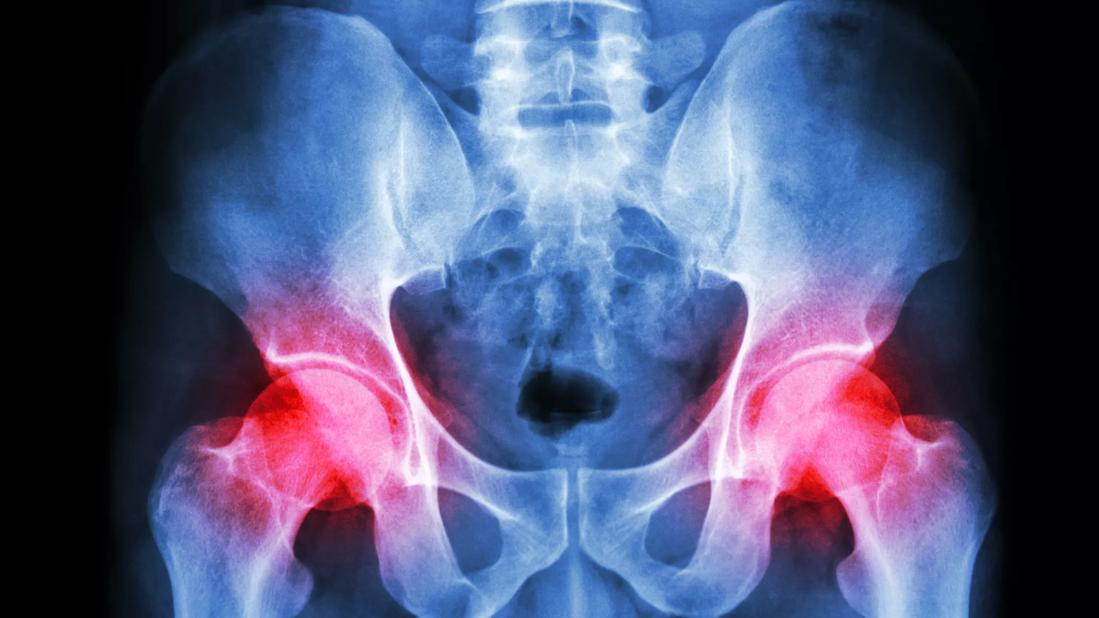
Bone marrow aspirate concentrate (BMAC) is an emerging orthobiologic that has shown promise for the treatment of early osteoarthritis. Cleveland Clinic Florida researchers are launching the first ever phase III clinical trial researching the effects of BMAC versus triamcinolone in patients with hip osteoarthritis.
Advertisement
Cleveland Clinic is a non-profit academic medical center. Advertising on our site helps support our mission. We do not endorse non-Cleveland Clinic products or services. Policy
“Several clinical studies have demonstrated improved pain management and joint function after BMAC treatment in knee osteoarthritis, but there is very little data on hip OA and currently no randomized controlled trials,” explains principal investigator Leonardo Oliveira, MD, a sports medicine physician with Cleveland Clinic Weston Hospital who specializes in joint preservation treatments. “We want to contribute to the greater understanding of this orthobiologic modality.”
Treatment goals for hip OA, which is estimated to affect 1 in 4 adults over the age of 50 in the United States, are to minimize pain and improve joint function and physical activity. Conventional nonsurgical treatments include weight loss, rehabilitation, activity modification, assistive devices, anti-inflammatory medications and nutritional supplements. Second-line treatments, prior to surgery, include injection therapies, such as corticosteroids.
“In my own clinical experience, I’ve seen a diminished response in patients receiving repeated corticosteroid injections, and the latest research suggests the long-term use of steroids may accelerate joint deterioration,” notes Dr. Oliveira. “There is clearly a need for safer, more efficacious treatment alternatives than what is currently available.”
Today a growing number of orthopaedic specialists are using novel treatment modalities, called orthobiologics, to help patients manage OA symptoms and enhance tissue function in the setting of cartilage injuries or joint damage. These include platelet-rich plasma and BMAC, which is a concentrate of mesenchymal stem cells obtained from a patient’s bone marrow.
Advertisement
“The purpose of our study is to compare the therapeutic efficacy of a single intraarticular BMAC injection versus a corticosteroid injection for patients with symptomatic hip OA,” says Dr. Oliveira.
The single site, randomized single blinded, two arm study is set to launch later this summer and will enroll 50 patients into each arm. Patients in the BMAC arm will undergo an aspiration procedure in the posterior superior iliac spine, and the bone marrow will be concentrated at the point of care using a commercial kit. Patients receiving the triamcinolone will undergo a sham bone aspiration in the same location to simulate the aspiration and keep patients blinded. Both groups will receive hip injections under ultrasound guidance.
“We will test the aspirate for BMAC viability, bacteria, platelet concentration, volume, and total nucleated cell counts prior to injecting,” says Dr. Oliveira, noting this will contribute to procedure standardization in the future.
Researchers will track the change in pain and functional scores through validated patient reported outcomes scores, including the Western Ontario McMaster Universities Arthritis Index (WOMAC), from baseline to 12 months post-treatment. They will also track the participant’s performance on the 6-minute walk test.
“Based on past patient experience, we believe the triamcinolone will generate earlier, short term pain relief while BMAC will take longer to have an effect but with a longer duration,” says Dr. Oliveira.
In collaboration with the Cleveland Clinic Florida Research and Innovation Center, Dr. Oliveira’s team will also quantify and correlate cell characterization of the BMAC with patient reported outcome scores. The samples will undergo flow cytometry for detection of mesenchymal stem cells and cell analysis for colony-forming units.
Advertisement
“BMAC carries a concentration of mesenchymal stem cells, growth factors and cytokines that are involved in angiogenesis, chondrocyte metabolism, stem cell homing, and anti-inflammatory response,” explains Dr. Oliveira. “To confirm clinical efficacy of BMAC and help establish treatment standards in the future, including optimal dosage, we need to verify the concentration and potency of the cellular elements in the injection samples.”
Dr. Oliveira also points to philanthropy’s vital role in investigating alternative treatment approaches like BMAC. “Our study is funded in part by the Lisa Dean Moseley Foundation, and we are deeply grateful for their support,” he adds.
Complete patient inclusion and exclusion criteria are available online. To refer a patient for study participation, please contact Research Coordinator Jillian King at (954)659-6227 or via email at kingj19@ccf.org.
Advertisement
Advertisement

Nonthermal technique reduces bleeding and perforation risk

Standardizing a minimally invasive approach for Barrett’s Esophagus and Esophageal Cancer

PSMA-targeted therapy for metastatic prostate cancer now offered at Cleveland Clinic Weston Hospital

Nationally recognized urologic oncologist offers vision for growth, innovation, and excellence

Noninvasive modality gains ground in United States for patients with early-to-moderate disease

Cleveland Clinic Weston Hospital’s collaborative model elevates care for complex lung diseases

Interventional pulmonologists at Cleveland Clinic Indian River Hospital use robotic technology to reach small peripheral lung nodules

Trained in the use of multiple focal therapies for prostate cancer, Dr. Jamil Syed recommends HIFU for certain patients with intermediate-risk prostate cancer, especially individuals with small, well-defined tumors localized to the lateral and posterior regions of the gland.